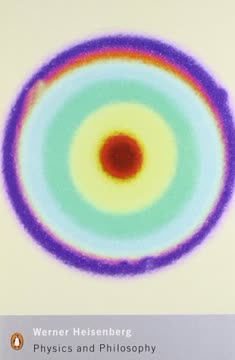Werner Heisenberg
Werner Heisenberg was a German theoretical physicist who made fundamental contributions to quantum mechanics.
He is best known for formulating the uncertainty principle, which states that it is impossible to simultaneously measure both the position and momentum of a particle with absolute precision.
Heisenberg won the 1932 Nobel Prize in Physics for his role in creating quantum mechanics.
His work also extended to nuclear physics, quantum field theory, and particle physics.
Beyond his scientific achievements, Heisenberg was known for his philosophical approach to physics, exploring the implications of quantum theory on our understanding of reality and the limits of human knowledge.




